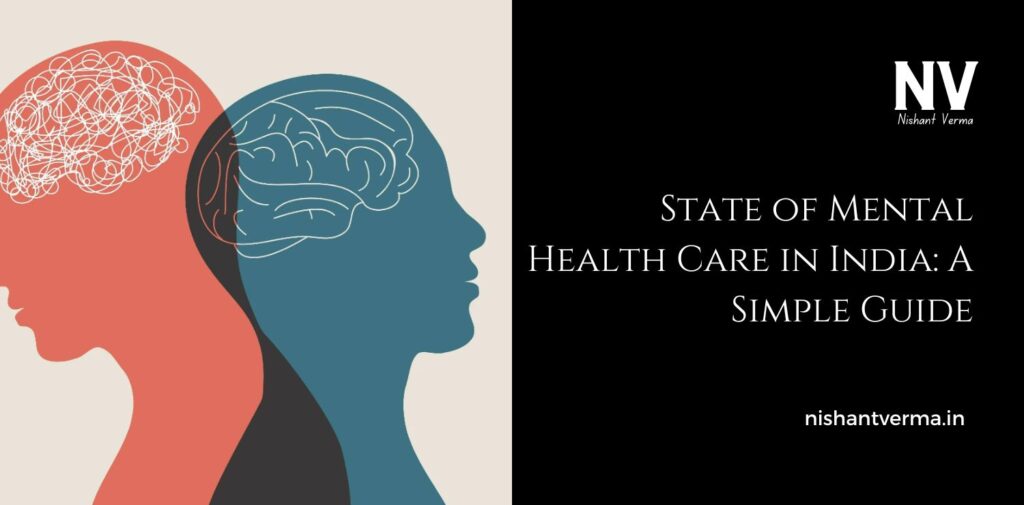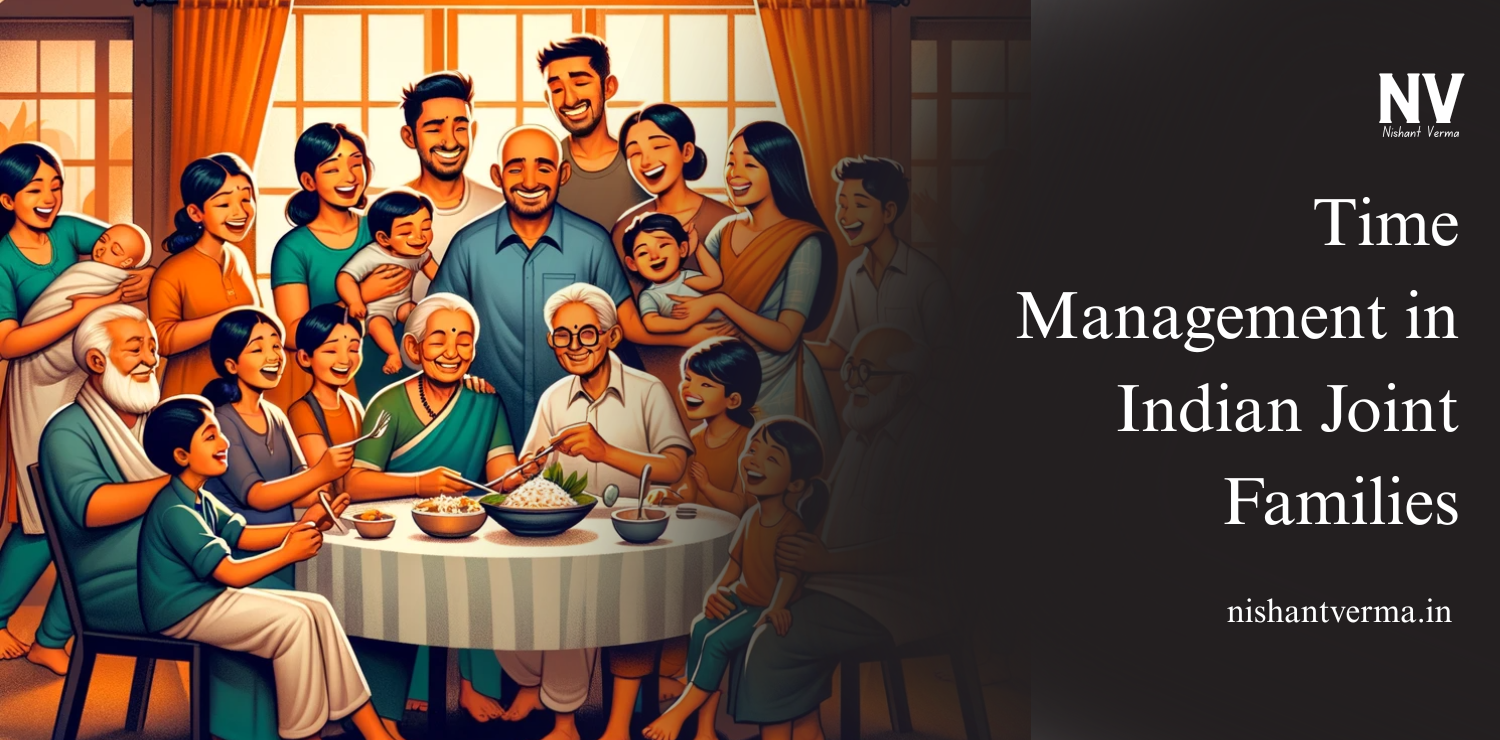Mental health is a very important part of our overall well-being, but it’s often overlooked, especially in countries like India. Just like we take care of our body when we feel sick, our mind also needs care when it feels stressed, anxious, or sad. In this article, we will talk about mental health care in India—how it has developed, what challenges it faces, and what needs to be done for better care in the future.
What is Mental Health?
Mental health refers to our emotional, psychological, and social well-being. It affects how we think, feel, and act in our everyday lives. Good mental health helps us handle stress, work productively, and make positive choices. When we have poor mental health, we might struggle with feelings of sadness, anxiety, or even anger. Just like our body can get sick, our mind can get sick too.
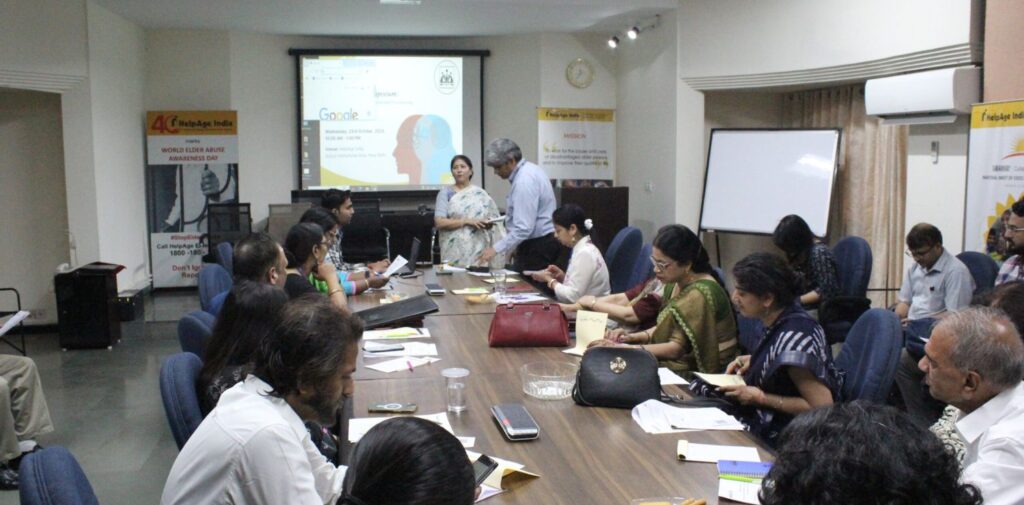
The Early Days of Mental Health Care in India
In ancient India, mental health was considered as important as physical health, and there were different practices to maintain both. In early Indian history, people used yoga, meditation, and ayurvedic treatments to heal and calm the mind. Ancient texts like the Vedas even mentioned mental illnesses. However, over time, mental health care in India was forgotten or misunderstood. Mental illnesses were often seen as something related to spirituality or supernatural powers, rather than medical conditions.
The British Era and Mental Health
During British rule in India, mental health care became more formalized, but it was still very limited. The British built mental hospitals in India to manage people with severe mental illnesses. These hospitals were overcrowded and lacked proper care or treatments. People with mental illnesses were often treated in inhumane ways, and the stigma surrounding mental health grew stronger. There was very little awareness about mental health issues, and it was often treated as a taboo subject.
After Independence: The Struggle for Better Care
After India gained independence in 1947, the country began to focus on improving health care for all citizens, but mental health was still not a priority. The government built more mental hospitals, but many of them were underfunded and did not offer the proper care. There was little support for people living with mental health problems, and most of the society didn’t understand mental illness.
The Mental Health Care System Today
Today, India’s mental health care system is slowly improving, but it still faces many challenges. India is home to over 1.3 billion people, and mental health issues affect a significant portion of the population. It is estimated that about 150 million people in India are affected by some form of mental illness, yet very few seek help due to stigma and lack of resources.
Lack of Awareness and Stigma
One of the biggest problems with mental health care in India is the stigma attached to it. People who suffer from mental health issues often face discrimination and are treated unfairly by society. Many believe that mental illness is a sign of weakness, or something to be ashamed of. Because of this stigma, many people don’t seek help, and this worsens their condition.
For example, if someone is feeling sad or anxious, they may be told to “snap out of it” or “get over it.” People with mental illnesses may be seen as “crazy” or “possessed,” and this prevents them from opening up about their feelings. This stigma makes it harder for individuals to receive the treatment they need.
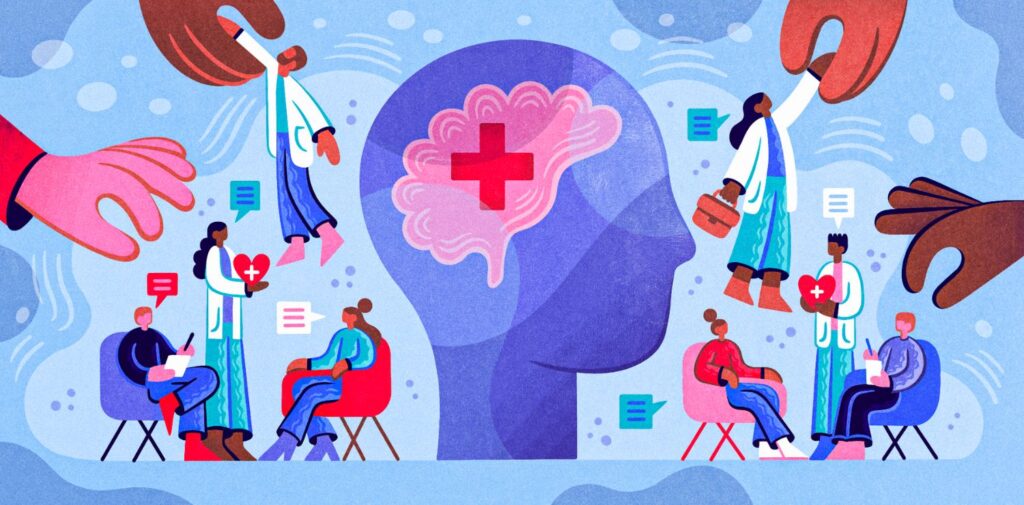
Shortage of Mental Health Professionals
Another big challenge is the shortage of trained mental health professionals in India. According to the World Health Organization (WHO), there are fewer than 0.3 psychiatrists per 100,000 people in India. This is much lower than the global average. There is also a shortage of counselors, psychologists, and social workers who specialize in mental health care. As a result, many people who need help don’t have access to mental health professionals.
Inadequate Facilities and Resources
Mental health care facilities in India are also limited and often not well-equipped. While there are mental hospitals and clinics in urban areas, people in rural areas have very few options for care. Many mental health facilities are underfunded, overcrowded, and understaffed. The lack of resources makes it difficult for people to get proper treatment and support.
Steps Towards Improvement
Even though mental health care in India faces many challenges, things are starting to improve. There have been several important steps taken in recent years to address mental health issues and improve care.
The Mental Health Care Act of 2017
In 2017, India passed the Mental Health Care Act, which was a major step forward for mental health rights in the country. This law recognizes mental illness as a medical condition and gives people the right to access mental health care. It also protects individuals with mental health issues from discrimination. The act also emphasizes the need for community-based care, which helps people with mental health problems live normal lives in their communities rather than in institutions.
Increasing Awareness
Increasing awareness about mental health is another important step in improving mental health care in India. More people are now talking openly about mental health issues, which is slowly reducing the stigma. Schools, colleges, and workplaces are beginning to recognize the importance of mental health and offering support systems. Many organizations and NGOs are working hard to educate people about mental illness and encourage them to seek help if needed.
Telemedicine and Online Support
In recent years, telemedicine has become a helpful tool for mental health care. With the rise of smartphones and internet access, people can now access mental health services online. Many psychologists, counselors, and psychiatrists are offering consultations through video calls, making it easier for people to get help without having to visit a clinic. This is especially beneficial for people in rural areas who don’t have access to mental health professionals nearby.
Support from NGOs and Communities
Many non-governmental organizations (NGOs) in India are working to improve mental health care by offering counseling, awareness programs, and support groups. These organizations are helping to break down the stigma surrounding mental health and making it easier for people to seek help. They also provide free or low-cost mental health services to those who cannot afford treatment.
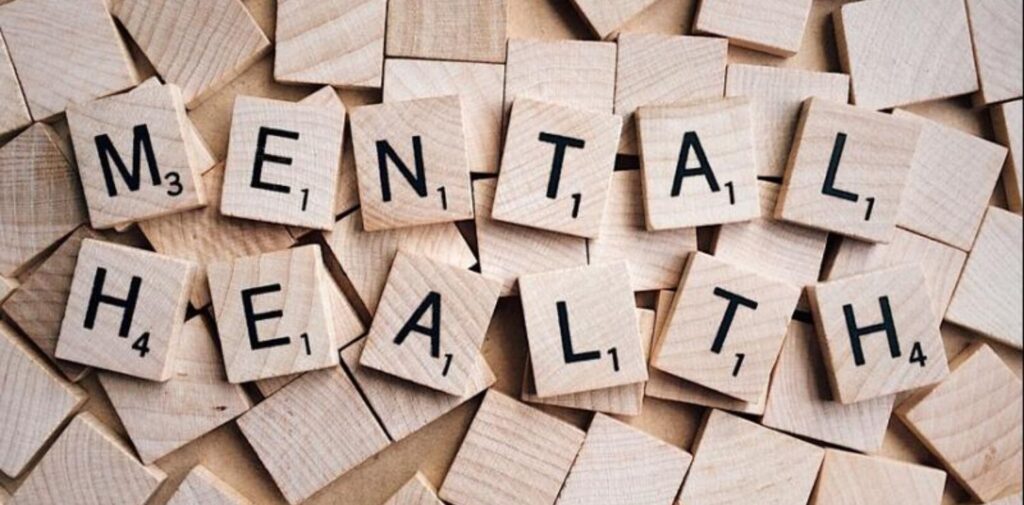
What More Needs to Be Done?
Although there have been some positive changes, there is still a lot of work to be done. Here are a few areas that need attention:
- Better Access to Care: More mental health professionals need to be trained, and mental health facilities need to be expanded, especially in rural areas.
- Reducing Stigma: We need to continue working to reduce the stigma around mental health. This can be done through education and open discussions.
- More Support Systems: Schools, workplaces, and communities should have more programs that support mental health. People should feel comfortable talking about their mental health without fear of judgment.
- Affordable Treatment: Mental health care should be made more affordable for everyone. No one should be denied help because they can’t pay for it.
Conclusion
Mental health care in India has come a long way, but there is still a lot to be done to ensure that everyone receives the help they need. It’s important that we all work together to reduce the stigma, increase awareness, and improve access to mental health services. By doing this, we can create a society where mental health is treated with the same importance as physical health, and people are no longer afraid to seek the help they deserve. Let’s all take care of our minds, just as we do with our bodies!

